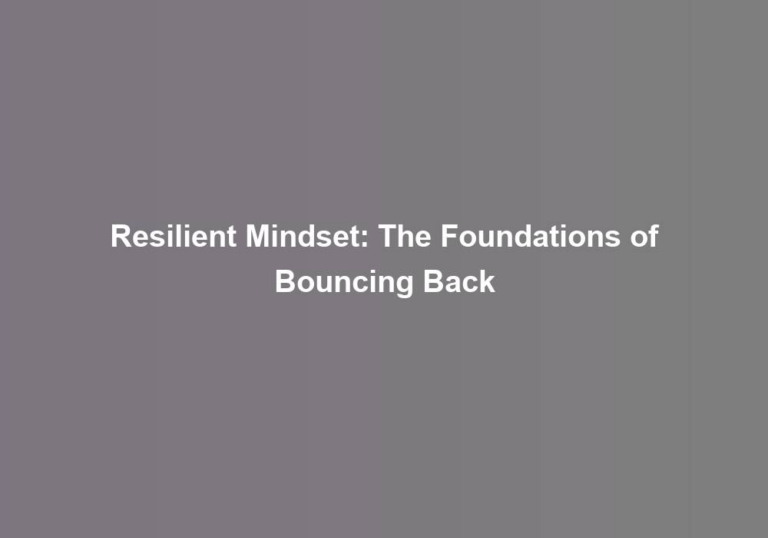Dream Science: The Importance of Sleep for Wellbeing
Imagine your mind as a garden, and sleep as the essential watering it needs to flourish. As you know, the quality of the water directly impacts the health and vibrancy of the garden. Similarly, the quality and quantity of your sleep have a profound impact on your overall wellbeing. But have you ever stopped to truly consider the intricate relationship between your dreams, sleep, and your mental and physical health? The intersection of dream science and wellbeing is a fascinating, yet often overlooked, area of study that may hold the key to unlocking the full potential of your mind and body.
The Science of Dreams and Sleep
Understanding the mechanisms behind dreams and sleep is crucial for grasping the full complexity of the human mind and body. When it comes to the science of dreams and sleep, the concept of REM cycles plays a significant role. REM, or rapid eye movement, is a stage of sleep where most dreaming occurs. During this stage, the brain is highly active, almost as active as when you are awake. ItG??s a fascinating aspect of sleep because itG??s when your brain processes emotions and experiences, leading to vivid and emotional dreams.
Dream analysis is another essential component of the science of dreams and sleep. It involves examining the content of your dreams to gain insight into your subconscious thoughts and feelings. This process can provide valuable information about your emotional state and help you uncover underlying issues that may be affecting your wellbeing. By understanding the symbolism and meaning behind your dreams, you can gain a deeper understanding of yourself and your inner world.
As you delve into the science of dreams and sleep, you become more attuned to the intricate processes that govern your mind during the night. ItG??s a way to feel connected to the universal experience of dreaming and to gain a sense of belonging in the broader human experience. By understanding the significance of REM cycles and dream analysis, you can appreciate the intricate ways in which your mind and body work together to support your overall wellbeing.
Sleep Deprivation and Health
Sleep deprivation can have serious consequences for your physical and mental health. When you consistently fail to get enough sleep, it can impact your overall wellbeing. Poor sleep quality and lack of sleep can lead to various health issues, including an increased risk of heart disease, diabetes, and obesity. It can also weaken your immune system, making you more susceptible to illnesses.
In addition to the physical effects, sleep deprivation can also impair your cognitive function. You may experience difficulties with concentration, problem-solving, and decision-making. This can negatively impact your performance at work or school, leading to decreased productivity and an inability to effectively manage daily tasks.
Furthermore, sleep deprivation can have a significant impact on your mental health. It can contribute to increased levels of stress, anxiety, and mood disturbances. Over time, chronic sleep deprivation may even lead to the development of depression or other mental health disorders.
ItG??s important to prioritize good sleep habits and make sleep a priority in your daily routine. By ensuring that you get enough high-quality sleep, you can protect both your physical and mental health. Taking steps to improve your sleep hygiene and creating a comfortable sleep environment can positively influence your overall wellbeing and cognitive function.
Sleep and Mental Wellbeing
Improving your sleep quality can have a profound impact on your mental wellbeing, influencing your mood, stress levels, and overall emotional resilience. Quality sleep is essential for maintaining emotional regulation, as it allows your brain to process and regulate emotions effectively. When you consistently experience poor sleep, your emotional regulation may be compromised, leading to increased irritability, mood swings, and difficulty in coping with daily stressors.
Furthermore, inadequate sleep can exacerbate symptoms of anxiety and depression, making it harder for you to manage these conditions effectively. ItG??s important to recognize the intricate relationship between sleep and mental wellbeing. By prioritizing good sleep habits, such as maintaining a consistent sleep schedule and creating a relaxing bedtime routine, you can positively impact your emotional resilience and overall mood.
Additionally, quality sleep plays a crucial role in cognitive functions that are closely tied to emotional wellbeing. When youG??re well-rested, your ability to problem-solve, cope with challenges, and maintain a positive outlook is enhanced. On the other hand, sleep deprivation can impair your cognitive abilities, making it harder to regulate emotions and respond to stressors in a healthy manner.
Impact of Dreams on Memory
Prioritizing good sleep habits and achieving quality sleep can also have an impact on your memory, particularly through the influence of dreams. Dreaming plays a crucial role in memory consolidation, which is the process of stabilizing and storing new memories. HereG??s how dreams affect your memory:
-
Memory Consolidation: During the rapid eye movement (REM) stage of sleep, which is when most dreaming occurs, the brain processes and consolidates the information youG??ve learned throughout the day. This consolidation process strengthens and integrates new memories with existing knowledge, aiding in long-term retention.
-
Dream Interpretation: Some theories suggest that dreams serve as a form of unconscious problem-solving, where the brain revisits recent experiences and emotions. This reprocessing of memories during dreams may help in understanding and interpreting complex emotions and events, leading to better memory recall and emotional regulation.
-
Emotional Memory Processing: Dreams can also influence emotional memory processing, making it easier to cope with challenging or traumatic experiences. By replaying and processing emotional events during dreams, the emotional charge of these memories can be reduced, contributing to overall mental wellbeing.
-
Memory Reorganization: Dreams may assist in reorganizing and connecting memories, which can enhance creativity and insight. This reorganization process can lead to new perspectives and innovative problem-solving abilities, ultimately contributing to improved memory retrieval and cognitive function.
Understanding the impact of dreams on memory highlights the importance of quality sleep and its role in cognitive processes, ultimately contributing to your overall wellbeing.
Sleep Hygiene and Wellbeing
What steps can you take to ensure that your bedtime routine promotes quality sleep and contributes to your overall wellbeing? Creating consistent sleep rituals and a comfortable sleep environment are crucial for improving your sleep hygiene and overall wellbeing. Start by establishing a regular bedtime routine, such as reading a book, taking a warm bath, or practicing relaxation exercises to signal to your body that itG??s time to wind down. By incorporating calming activities into your bedtime routine, you can ease the transition into sleep and reduce stress and anxiety.
When it comes to your sleep environment, the setup of your bedroom plays a significant role in promoting quality sleep. Keep your bedroom cool, dark, and quiet to create an optimal sleep environment. Consider investing in blackout curtains, earplugs, or white noise machines if external factors disrupt your sleep. Additionally, ensure that your mattress and pillows provide the comfort and support you need for a restful nightG??s sleep.
ItG??s essential to limit screen time before bed as the blue light emitted by electronic devices can interfere with your bodyG??s natural sleep-wake cycle. Try to create a technology-free zone in the bedroom to promote relaxation and signal to your brain that itG??s time to sleep.
Conclusion
In conclusion, the science of sleep and dreams shows the significant impact on your overall wellbeing. Prioritize proper sleep hygiene to promote mental and physical health. Remember, rest is crucial for resetting your mind and body. DonG??t dismiss the importance of your dreams, as they play a pivotal role in memory consolidation. Embrace the power of quality sleep for a happier, healthier you.







